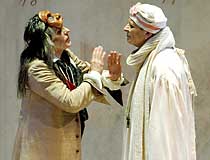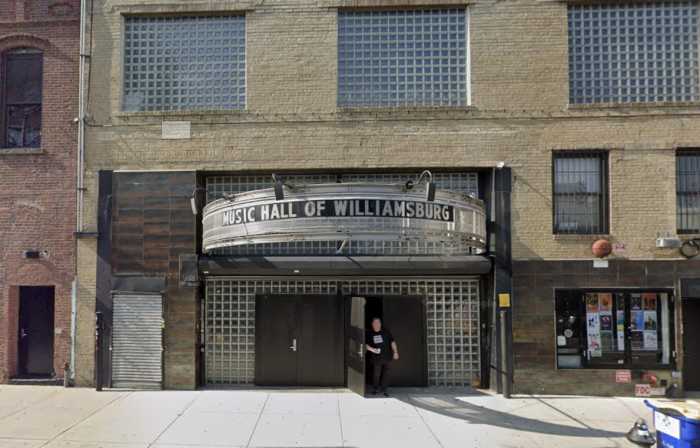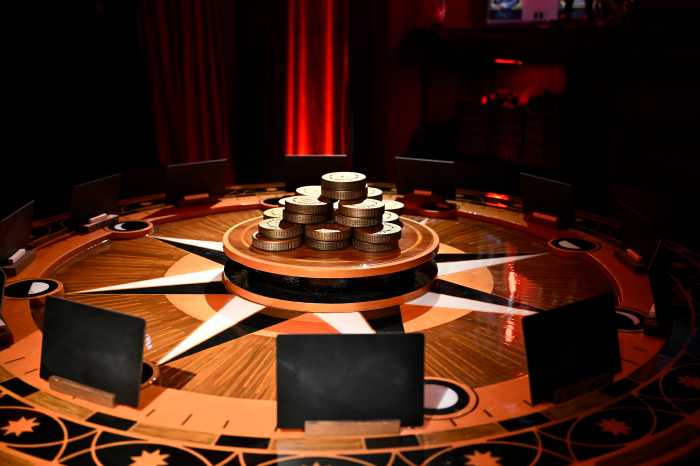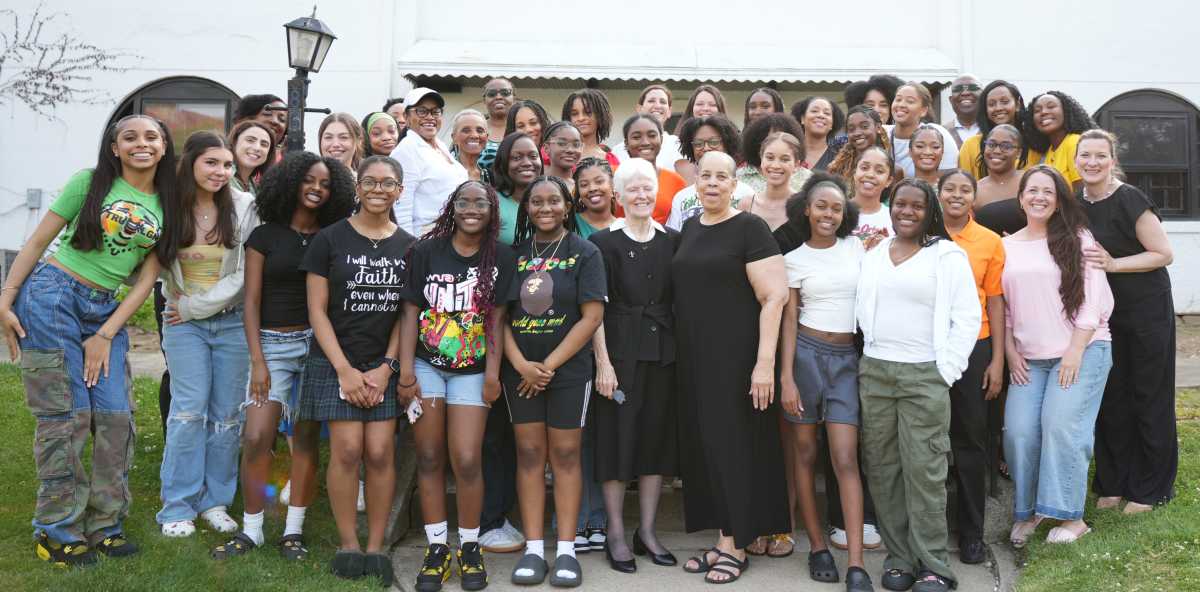Who better to light up the house at BAM’s
Harvey Theater with Moliere’s "The Imaginary Invalid"
than the House of Moliere? Better known as La Comedie-Francaise,
this venerable theatrical institution has been presenting not
only Moliere but also the entire repertoire of classical French
drama since 1681 when Louis XIV merged Moliere’s acting company
with several rival companies.
The Comedie-Francaise has made only four tours to the United
States in the past 25 years, including productions at BAM of
Moliere’s "The Misanthrope" and Georges Feydeau’s "A
Flea in Her Ear" in 1979 and Moliere’s "Don Juan"
in 1994. The company’s return to BAM this season is an event
not to be missed.
"The Imaginary Invalid" ("Le Malade Imaginaire"),
first performed in 1673, is Moliere’s last play. (He died after
playing the lead in the play’s fourth performance.) Having penned
comedies that ridiculed the clergy, the bourgeoisie, pedants
and libertine nobility, he now turned his attention to the medical
profession.
In the Comedie-Francaise’s production at the BAM Harvey on June
9, Argan (played by Alain Pralon) is a gullible hypochondriac
who spends his time and money consulting doctors who treat him
for imaginary diseases. Although his second wife, Beline (Catherine
Sauval), would like his daughter, Angelique (Julie Sicard) sent
to a convent so she can get her hands on his money, Argon prefers
marrying her off to a doctor, Thomas Diafoirus (Nicholas Lormeau),
so he will always have a doctor in the house.
Angelique, however, has already fallen in love with Cleante (Eric
Ruf), and it is up to the clever servant, Toinette (Muriel Mayette),
to find some way to show Beline up for what she is and make Cleante
an acceptable substitute for a doctor.
In this excellent production, director Claude Stratz remains
faithful to French classical 17th century style while adding
creative and dramatic 21st century touches.
Ezio Toffolutti provides the 17th century costumes and the deceptively
simple set that harbors some delightful surprises. But it is
Jean-Philippe Roy’s lighting that bathes the stage in modern,
expressionistic lighting and also produces the pyrotechnics that
accompany the most dramatic moments.
This production has many unforgettably hilarious moments – Angelique
and Beline declaring their love in an impromptu opera; Toinette,
disguised as a doctor, diagnosing Argan’s malady; Argan denouncing
that scoundrel Moliere for his slandering of doctors; and the
final ballet (the play is called a "comedie-ballet")
with its Latin doggerel, a parody of the ceremony involved in
conferring degrees on doctors.
As a repertory company with lifetime members, the Comedie-Francaise
is able to nurture talent in a way unknown in the United States.
The benefits of such a system are obvious in the quality of the
acting one sees in this production. The energy, timing and delivery
of these actors all make it obvious why the Comedie-Francaise
remains pre-eminent in the world of theater.
Of particular note is the feisty performance of Toinette, who
in her servant’s role of pleasing everyone manages to please
the audience most of all. Lormeau is admirably over the top as
the dunce poor Angelique may be forced to marry. And, of course,
Pralon pulls out all the stops as the ridiculous hypochondriac
dreams of enemas and bodily functions.
Even with the king’s patronage, it wasn’t easy being a radical
in the 17th century. "Tartuffe," written in 1664, could
not be produced until 1667 because of clerical opposition. "Don
Juan" was considered so offensive to nobility that it had
to be taken out of the company’s repertoire.
Today, many of Moliere’s bete noires are no longer relevant.
But if times change, human beings do not. Hypocrisy, vice and
pedantry still plague mankind. And Moliere’s advice that the
road to salvation lies in moderation and good sense is still
counsel one would do well to follow. But perhaps Moliere’s most
pertinent legacy is the lesson Argan could have used – laughter
is the best medicine.
La Comedie-Francaise’s production of
"The Imaginary Invalid" continues June 12 at 7:30 pm
and June 13 at 3 pm. Tickets are $25, $40 and $60. The BAM Harvey
Theater is located at 651 Fulton St. between Ashland and Rockwell
places in Fort Greene. For tickets and more information, call
(718) 636-4100 or visit www.bam.org.

























